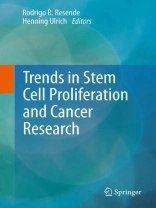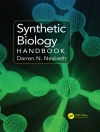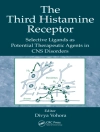The book will discuss the molecular mechanisms of cancer diseases, stem cell proliferation and transformation into cancer cells beyond the physiological processes that occur in normal stem cell biology. Some of the key oncogenic events in cancer and their signaling pathways that regulate cell division cycle progression will be described considering prospects for using such knowledge in advanced cancer therapy. Each chapter shall provide an invaluable resource for information on the most current advances in the field, with discussion of controversial issues and areas of emerging importance
Tabla de materias
Part I Molecular bases for stem and cancer cells proliferation.- An introduction to proliferation and migration of stem cells and cancer.- the role of cell adhesions, cell junctions and extracellular matrix in normal development and carcinogenesis.- The embryonic rest hypothesis of cancer development: 150 years later.- Are calcium channels more important than calcium influx for cell proliferation ?- Role of calcium signaling in stem cells and cancer cells proliferation.- |Formation and function of lipid droplets in inflammation and cancer.- The role of sphingolipids in modulating pluripotency of stem cells.- Part II Signaling pathways to cancer cells fate.- Signaling pathways of cbl-b and its role on peripheral t cell tolerance.- Bh3-only proteins in cancer and apoptosis.- Signaling pathways of mta family proteins as regulators of cancer progression and metastasis.- Signalling pathways of β-catenin/jnk on carcinogenesis.- The regulation of the jnk cascade and programmed cell death by nf-κb: mechanisms and functions.- Part III Uncontrolled physiology process guiding to cancer cells.- Migration, metastasis and more: the role of chemokines in the proliferation, spreading and metastasis of tumors.- Autophagy, cell death, and cancer.- the duality of stem cells – double edged sword in tumour evolution and treatment.- Glioblastoma stem cells and implications for chemoresistance.- The tumor microenvironment as a transient niche: a modulator of epigenetic states and stem cell functions.- Tumor-associated neutrophils (tans).- Microrna control of apoptotic programs in cancer.- Part IV Therapeutic strategies for anticancer treatment.- Markers of cancer stem cells and their functions.- Cancer cell dormancy: potential therapeutic targets to eradicate cancer cells within the niche.- Modulating apoptosis in cancer therapy with ultrasound and high intensity nanosecond electric pulses.- Targeting cell cycle for anticancer treatment andneuroprotection.












